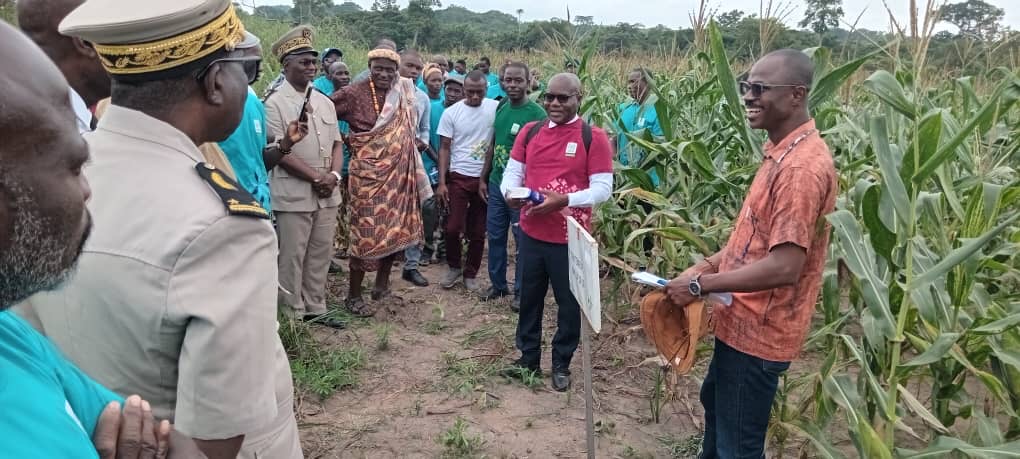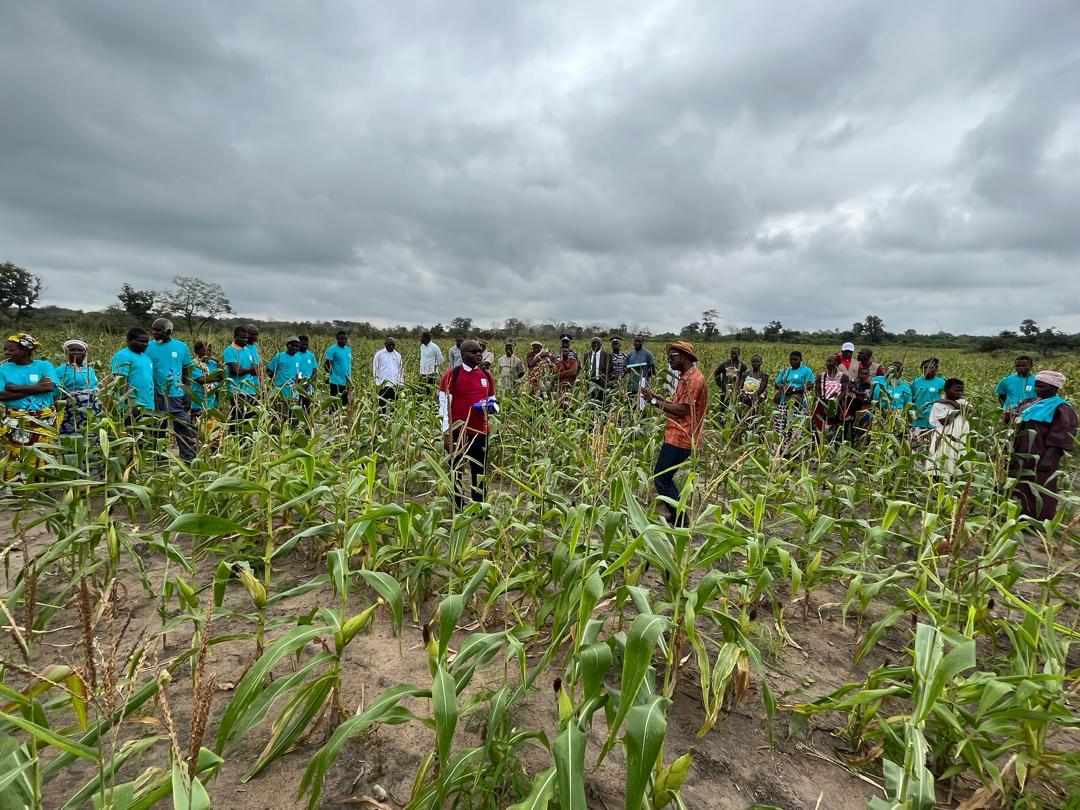Building Farmer Capacity in Côte d’Ivoire through Best Management Practices for Maize
The African Plant Nutrition Institute (APNI), in collaboration with Côte d’Ivoire’s Ministry of Technical Education and Vocational Training (METFPA) and OCP, organized a Farmer Field Day in Asserikro, Sakassou. This September event brought together farmers, students, researchers, extension agents, private sector actors, and government representatives to explore practical solutions for sustainable nutrient management in maize-based systems.
This initiative is part of a growing partnership between APNI and METFPA, aimed at enhancing agricultural education and demonstrating best management practices (BMPs) tailored to Côte d’Ivoire’s diverse soils and crops. By setting up pilot demonstration plots in Asserikro, the collaboration has created an open platform where farmers, students, and agricultural entrepreneurs can learn about sustainable crop nutrition in real field conditions.
The Farmer Field Day mobilized more than 130 participants, including senior officials such as the Departmental Director of Agriculture, the Regional Director of Technical Education and Vocational Training, and the Prefect of Sakassou. In their remarks, officials emphasized the importance of addressing pressing agricultural challenges, from improving crop nutrition and water management to strengthening agricultural entrepreneurship, mechanization, and climate change resilience. They called for scaling up the initiative across the region to make agriculture more attractive to rural youth and to reduce migration from the countryside.
The field demonstrations enabled participants to see firsthand the differences between farmers’ conventional practices and improved BMP plots based on the principles of 4R Nutrient Stewardship, applying the Right Source, at the Right Rate, at the Right Time, and in the Right Place. Farmers were guided to identify nutrient deficiencies in maize, particularly nitrogen and phosphorus, and to observe how BMP treatments improved plant growth and yield potential. Through participatory assessment, they ranked nitrogen as the most limiting nutrient, followed by phosphorus and potassium.
In addition to crop observations, APNI and OCP demonstrated the use of soil testing kits to highlight the importance of site-specific fertilizer recommendations. These hands-on exercises reinforced the value of science-based nutrient management as a pathway to both higher yields and more sustainable farming systems.
The event concluded with a strong message of collaboration. The Prefect of Sakassou expressed gratitude to APNI and OCP for supporting METFPA’s efforts, emphasizing the need to extend BMP demonstration sites across different agroecological zones. Expanding these initiatives, he noted, would strengthen experiential learning, enhance farmer capacity, and ultimately improve livelihoods across rural Côte d’Ivoire.
By combining research, education, and extension, the tripartite partnership between APNI, METFPA, and OCP is helping to transform maize-based systems into more resilient, productive, and sustainable models, a step forward in building food security and creating opportunities for the next generation of farmers in Côte d’Ivoire.


